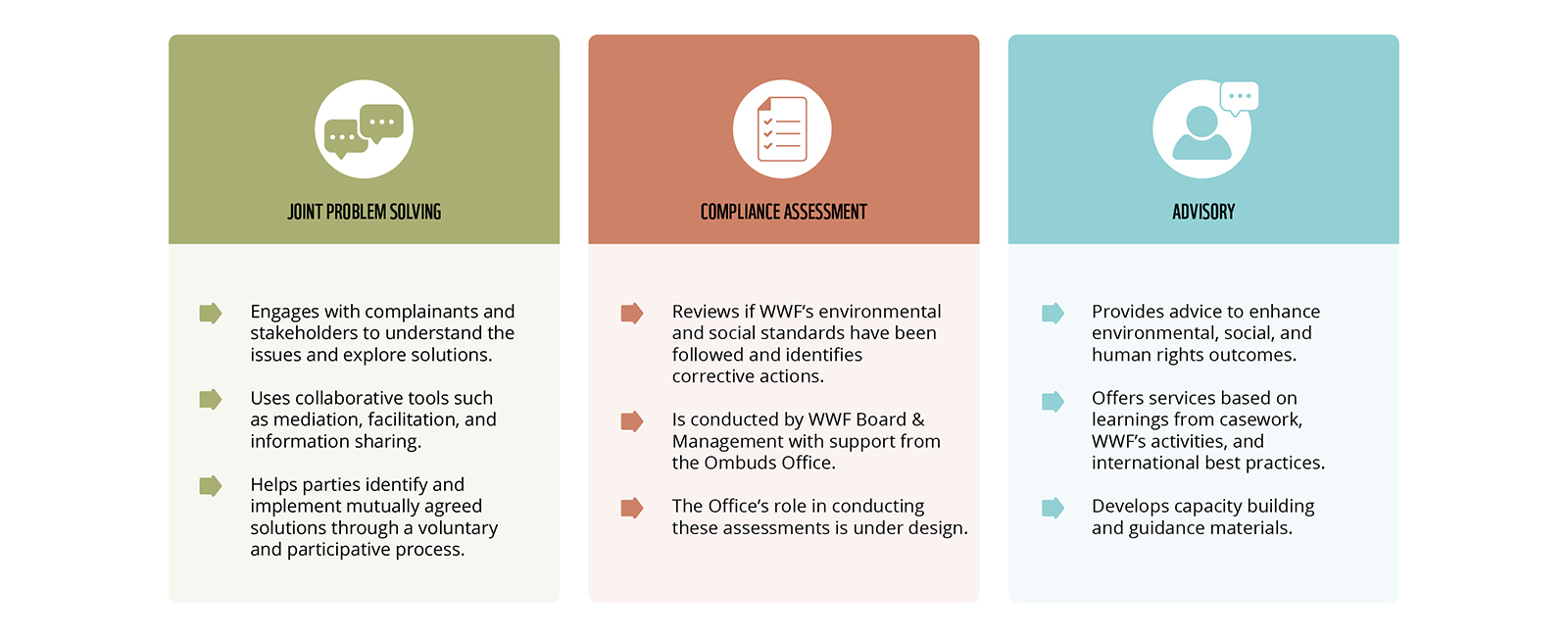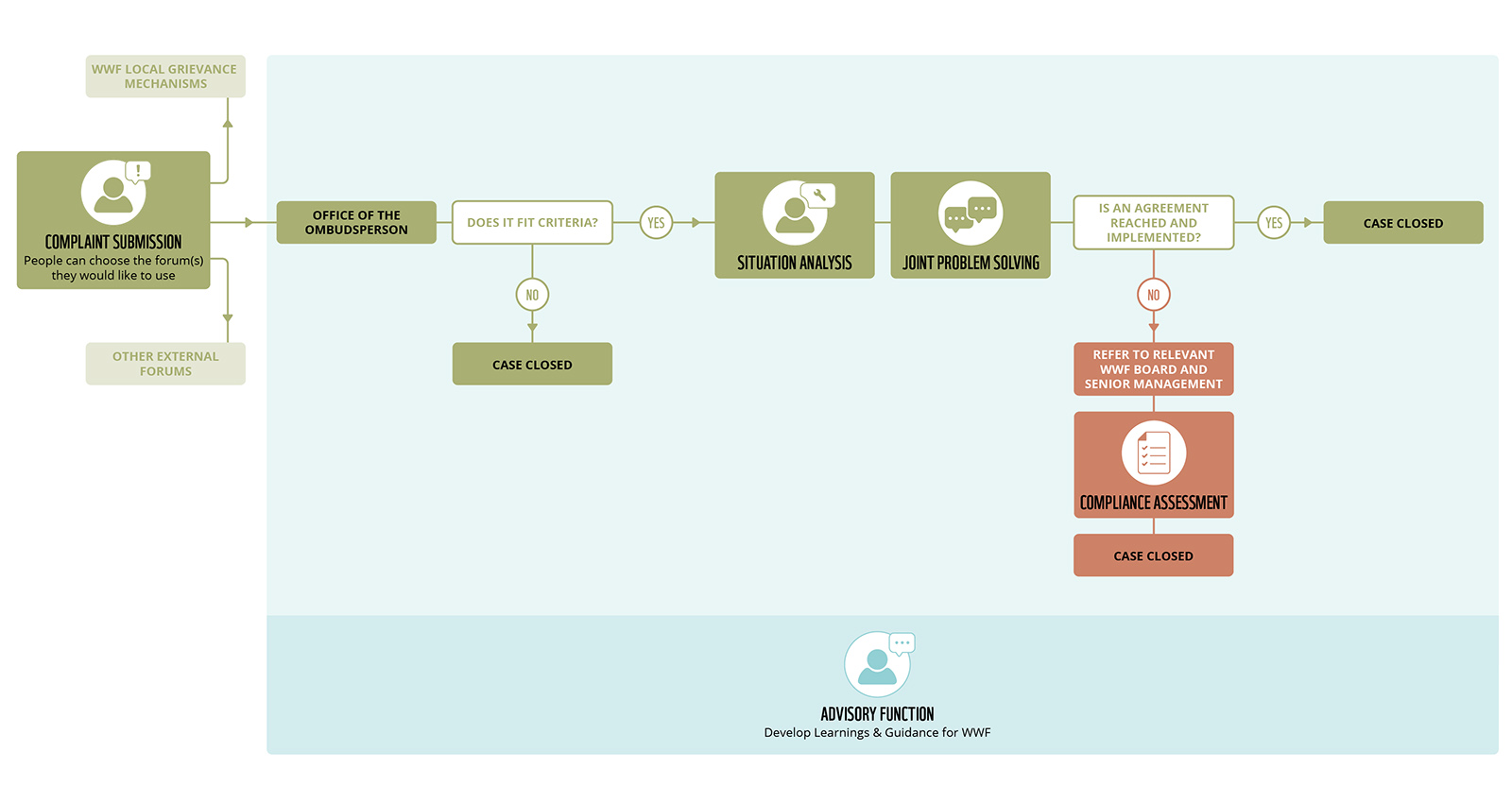The WWF is run at a local level by the following offices...
- WWF Global
- Adria
- Argentina
- Armenia
- AsiaPacific
- Australia
- Austria
- Azerbaijan
- Belgium
- Bhutan
- Bolivia
- Borneo
- Brazil
- Bulgaria
- Cambodia
- Cameroon
- Canada
- Caucasus
- Central African Republic
- Central America
- Central Asia
- Chile
- China
- Colombia
- Croatia
- Democratic Republic of the Congo
- Denmark
- Ecuador
- European Policy Office
- Finland
People who are concerned about environmental and social (E&S) impacts can choose between several forums to raise a complaint. WWF has established local grievance mechanisms in the places where it works. These project, landscape and country-level mechanisms are part of WWF’s grievance response ecosystem and are available to complainants.
The Office of the Ombudsperson offers an additional and independent channel for addressing E&S complaints. The Office can be approached by individuals or communities at any time and may be particularly important for those who seek a more independent process or alternatives to local grievance mechanisms.
The Office handles complaints if they relate to E&S concerns in WWF’s place-based activities and are raised by individuals or communities who may be affected by those activities.
Joint Problem Solving
For eligible complaints, the Office engages with complainants and other stakeholders to understand the issues, perspectives and potential options for resolution. The Office addresses complaints by providing collaborative problem-solving processes using tools such as mediation, facilitation and information sharing. During the problem-solving process the Office works closely with the complainants, other stakeholders and WWF to engage in dialogue and find mutually agreed solutions to the concerns raised.
Compliance Assessment
If the problem-solving process does not resolve the complaint, complainants can request WWF to conduct an assessment of whether environmental and social standards were met – known as a compliance assessment. If the complainant chooses this route, the Office transfers the complaint to the relevant WWF board and management for review. The Operating Framework gives the Office a mandate to support compliance assessments by WWF. The Office’s role in these assessments is under design, and will need International Board approval.
Advisory
The Office’s advisory role is to enhance WWF’s environmental, social and/or human rights performance, strengthen WWF’s programmatic work and reduce the risk of adverse impacts connected with WWF activities. The Office will provide advisory services based upon lessons learnt from its casework, reflections from its experience and good international practice, and may include a range of services including advice to WWF, capacity building initiatives and development of training and practice materials.

The three functions work together to address complaints and enhance WWF’s outcomes for people and nature.
